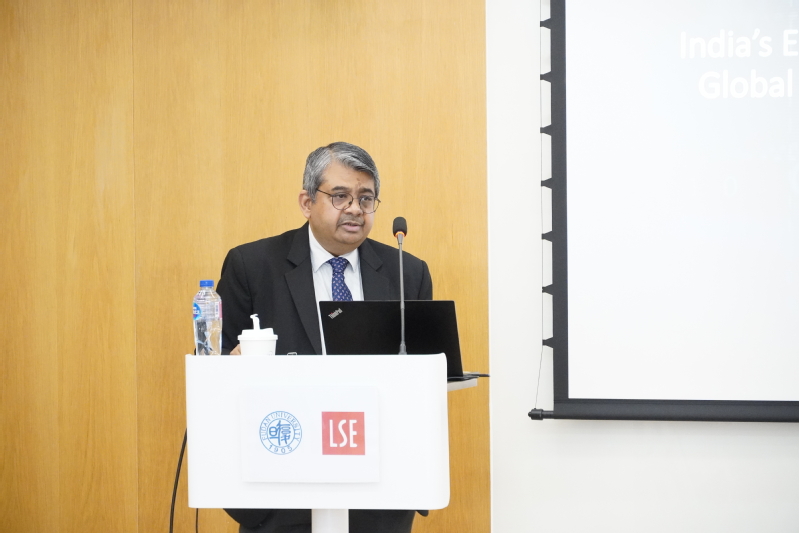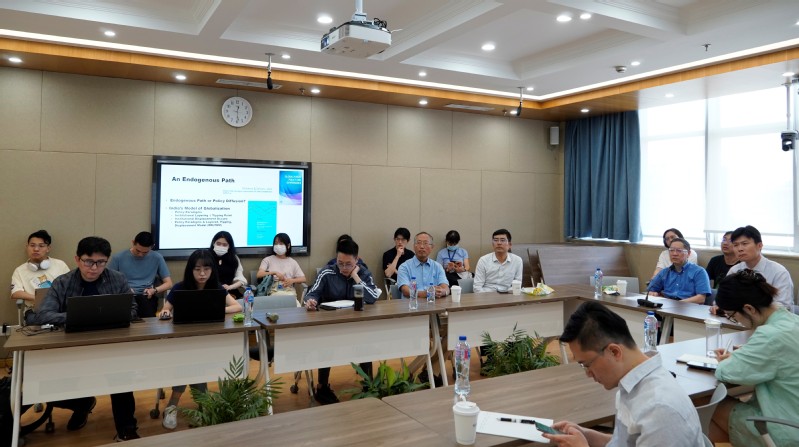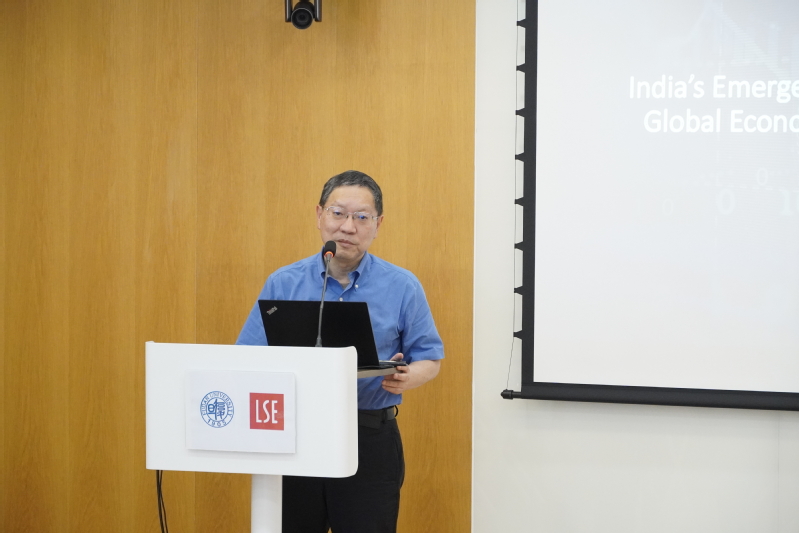Events



On May 29th, 2023, the 45th lecture of the Fudan-LSE Lecture Series was held in the conference room on the 8th floor of the West Sub-Building of Guanghua Towers. Professor Rahul Mukherji from South Asia Institute at Heidelberg University gave a lecture on “India’s Emergence in the Global Economic Order”. The lecture was hosted by Professor Yijia Jing, Dean of the Institute for Global Public Policy, Fudan University. Professor Dingli Shen from the Institute of International Studies, Fudan University served as the discussant.
At the beginning of the lecture, Prof. Jing gave a brief introduction of Prof. Mukherji. Prof. Rahul Mukherji is Professor and Head of the Department of Political Science at the South Asia Institute of Heidelberg University in Germany. He has served as the South Asia Institute director (2020-2022) and as speaker for the Centre for Asian and Transcultural Studies (2021-2022). Prof. Mukherji has taught at the National University of Singapore, the Jawaharlal Nehru University, Hunter College, and the University of Vermont. He is co-chair of the China-India workshop founded by Fudan University in Shanghai. He edits Indian Politics and Policy and serves on the board of journals such as India Review, Pacific Affairs, and Governance, and co-edits the Oxford Institutions and Development in South Asia book series. His books include Globalization and Deregulation: Ideas, Interests and Institutional Change in India (Oxford University Press, 2014). Prof. Mukherji holds a Ph.D. degree in Political Science from Columbia University.

Prof. Mukherji began his lecture with a brief review of the evolution of political economy theories in the study of global order. He illustrated colonialism, dependency theory, structural conflict, hegemonic stability, embedded liberalism, and neoliberalism. Prof Mukherji pointed out that since the 1990s, India’s engagement in the global economic order has gradually shifted from a structural conflict mode to an embedded liberal way, which leads to India’s deeper involvement in globalization.
Prof. Mukherji argued that the endogenous roots of institutional change can provide a powerful explanation for India's globalization path. He proposed the “Policy Paradigms & Layering-Tipping-Displacement Model” (PPLTDM) to analyze the development of embedded liberalism in India. Using this model, Prof. Mukherji argued that the seemingly sudden institutional displacements are the result of a gradual endogenous evolution of long-standing institutional layering that tips over a critical point. The shift in the Indian government's import substitution policy in the 1990s and the subsequent development in the information technology sector are examples of this model.

Next, Prof. Mukherji used three cases of policy changes in India in the areas of trade policy, climate policy, and vaccine policy to illustrate that embedded liberalism has declined in India in recent years and protectionism is on the rise. However, this does not mean the end of embedded liberalism or the end of India's engagement in the globalized economic order.
Prof. Mukherji's presentation was followed by a commentary by Prof. Dingli Shen. According to Prof. Shen, Prof. Mukherji provided a unique insight into the understanding of India's model of engagement in the global economic order. India's embedded liberal path has played an important role, but it has also imposed limitations on India's further development. Prof. Shen also commented that China's model of participation in the global economic order is different from India's and that the Indian government could draw insights from the Chinese experience.

After the commentary session, Prof. Mukherji discussed with the audience the topics of institutional drift and primary sources of policy pushbacks. The lecture ended with a round of applause from the audience.